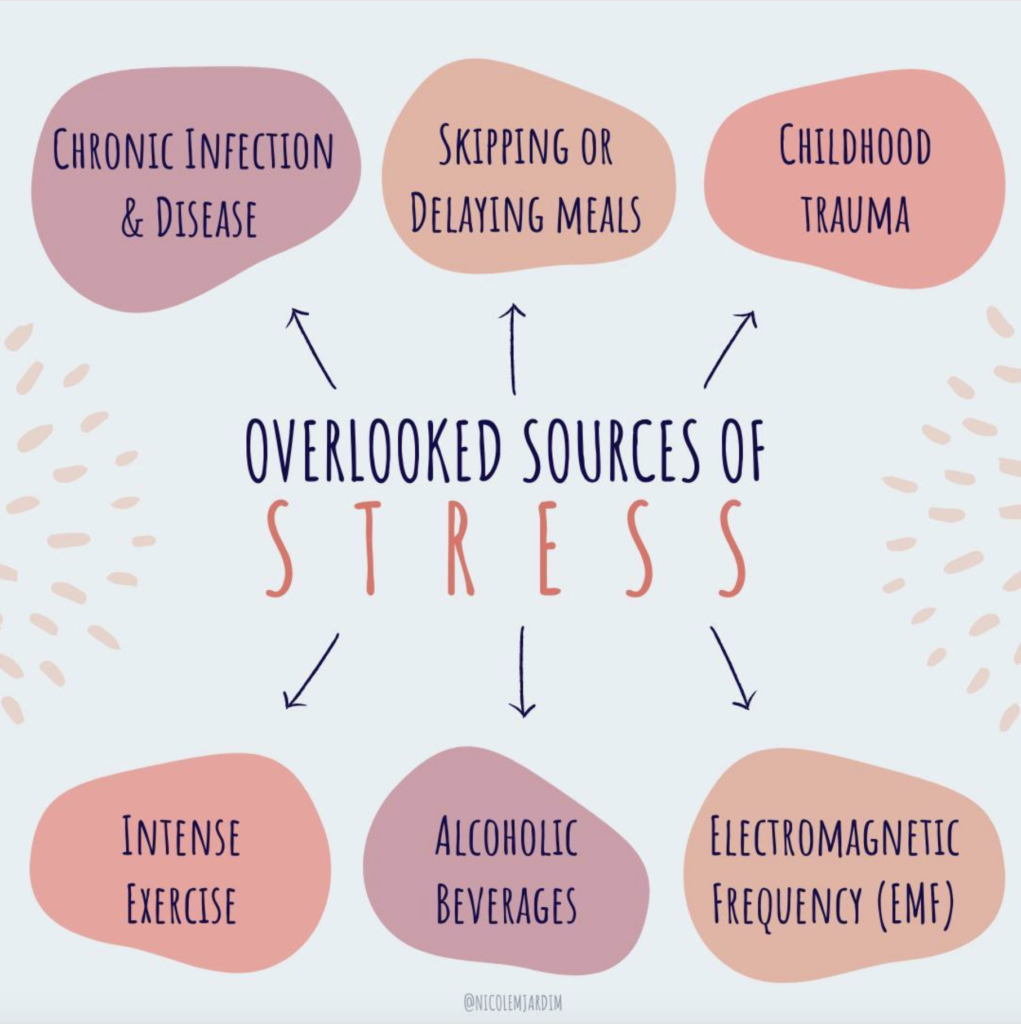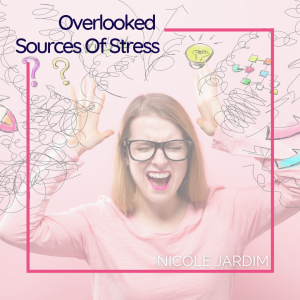Rushing Woman’s Syndrome, a term coined by Dr. Libby Weaver, PhD, describes the health consequences women face due to the unrelenting stress and perpetual busyness we all contend with every.single.day.
We all know the usual external sources of stress, such as overly demanding jobs, relationship turmoil, taking care of family, never-ending to-do lists, holiday shopping, or life in a fast-paced or polluted city. However, there are a number of sources of stress that are often not even considered.
Three sources of stress that are often overlooked

These include:
1. Chronic infections (Epstein-Barr virus, Lyme disease, gut infections & mold toxicity) and disease states like autoimmune conditions and cancer.
2. Childhood trauma (physical and sexual abuse, neglect, violence, and parental substance abuse, which leave scars that affect how you handle stressors in your adult life)
3. The things we don’t even consider stressful in our day-to-day life. To name just a few:
🏋🏽♀️ That intense spinning or CrossFit class you do three times a week.
📱EMF (electromagnetic frequency) exposure from your cell phone and laptop.
💡The streetlight that shines in your bedroom window at night or the light-emitting devices in your bedroom.
🌮 Skipping or delaying meals (enter blood sugar & cortisol issues)
🍷The glass of wine you have every night to destress from work (cue Alanis’ #ironic)
Combine these, and add in not knowing how to cope with all this stuff, and it’s no wonder so many of us are frazzled, anxious, and overwhelmed.
Changing the way you deal with stressors in your life is key to keeping your periods on track
Research shows that the way that you VIEW stress also has an impact on your health, and *hint* it’s not all bad…
In Kelly McGonigal’s book, The Upside of Stress (highly recommend this read!), she says, “Stress is what arises when something you care about is at stake.”
Stress and meaning are inextricably linked. You can’t create a meaningful life without experiencing some stress.
Physical responses that we associate with stress and anxiety:
❣️Fast heart rate
😅Perspiration
🌬️Deep breathing
😵Shakiness
These things are our bodies preparing us to meet an important challenge we are facing. This is not a weakness in our composition. It’s one of our strengths and we can learn to appreciate it rather than demonize it.
Research shows that:
The simple act of thinking about stress in a more positive way encourages people’s bodies to react to a difficult situation with more focus and courage. 💪
Protective beliefs about stress you can use
✅ View your body’s stress response as helpful, not debilitating – for example, when you feel your heart pounding from anxiety, you think about how your body is trying to give you the energy you need to rise to the challenge.
✅ View yourself as able to handle, and even learn and grow from, the stress in your life.
✅ View stress as something that everyone deals with, and not something that proves how uniquely screwed up you or your life is. 🙃
Changing any one of these attitudes can help you thrive in the face of ordinary stress as well as chronic or even traumatic stress + (bonus!) reduce period related problems.
Read this if you want to understand how stress affects your cycle!
Choosing to see the good side of stress isn’t about denying the fact that stress can be harmful. It’s about trying to balance your mindset so that you feel less overwhelmed and hopeless about the fact that your life is stressful. ✌️
More stress tips? Grab a copy of my book Fix Your Period + check out this article where I talk about cortisol, DHEA & rethinking stress.



